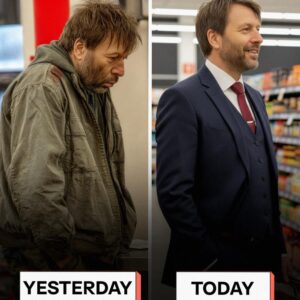When I was five, my mom and I were staying at my aunt’s house. One day, my aunt accused me of stealing an envelope of money. I was so young and scared that I almost believed I had somehow taken it and forgotten. My mom even threatened to call the police on me. Hours later, while we were already on the train home, my aunt casually called to say she’d found the money — it had slipped behind a drawer. My mom didn’t apologize. Not that day, not ever.
That moment changed me. For years, I feared being seen as a thief. I wouldn’t touch anything that wasn’t mine and avoided even picking up coins from the floor. The shame stuck with me. Even in school, if something went missing, I felt everyone’s eyes drift toward me first — and sometimes, they did. Each time, my heart raced like I was reliving that day all over again.
As I grew older, I became the most responsible kid, then a cautious teen. I got a job, studied psychology, and eventually realized that a single accusation in childhood can shape someone’s entire self-image. I turned that pain into purpose, even writing a small children’s book about adults being wrong and saying sorry. It helped other kids — which helped heal me, too.
Years later, my aunt mailed me a letter. She’d read my story and recognized the “lost envelope.” Inside was a note and a small amount of money — her way of finally saying sorry. I cried, not for the past, but because that five-year-old version of me finally felt seen. What I learned is simple but powerful: words to a child become their inner voice. And even if it takes years, it’s never too late to apologize — and rewrite someone’s story.





